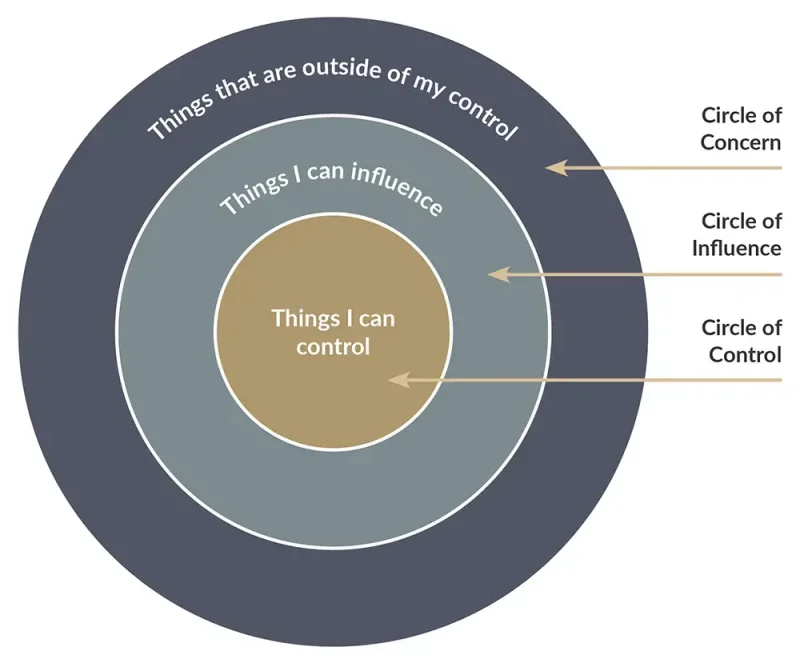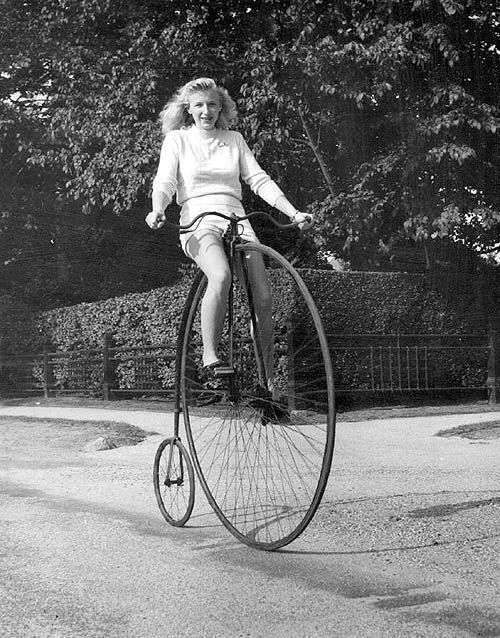
Category: Coaching Tips
-

How To Believe In That Little Idea...
Continue ReadingRead Time/Watch Time
5 minutes
Who should read this?
Veterinarians, vet nurses, vet techs, employers.
Author(s)
Melanie Barham
Region
Global content
How to believe in that "little" idea you have
Will you believe in yourself? Will you say your idea out loud?
When I started writing about non-clinical careers in vet med, it was an idea I kept quiet in my head for a LONG time. To be honest, I was so shy about the idea, about standing out or being a tall poppy that for a long time I just researched it, getting deep into articles about how to build a website and blog. Imagine if I had never done anything? I’d have missed out on a lot of cool things.
I see this time and time again, where people in our profession have a super idea they are afraid to say out loud, let alone bring it to reality. Not even letting that idea ever be said aloud.
Down with that, friends.
What a shame it would be to get to the end of your life, career, or year and have never ever taken a chance. What waste os exceptional brain power- yours!
Since the days when I couldn’t even say that I wanted to share stories of non-clinical careers, I’ve gained a lot of confidence, a global community of colleagues, and so so much.
I LOVE cheerleading people to bring their ideas to light; it brings me so much joy and energy, and I love hearing how people have summoned their courage and done something amazing with their idea. Most of them, like me, have watched that tiny bit of courage grow into new avenues and opportunities they didn’t even know existed.
As a recovering “hide your light under a bush” person who almost didn’t get up the courage to write that first blog, here’s a few top tips I can share if you’re feeling the same way.
- Write your idea down
- Share your idea with people who deserve to hear it
- Take 1 small first step, and then another
- Remind yourself of other times you’ve been brave and it’s been ok
- Write out the worst case scenario
- Watch Ted Lasso (not joking, I love this show)
If you’re looking for support as a leader or an individual, check out group career coaching in the UK and North America. We’ve helped people like Emily Singler take her big idea from dream to reality. It makes change possible. And we’ve got 10 cohorts of success to show it!

Curious to know More?
Subscribe to our newsletter and never miss our free events, resources, and tips!
-

How To Make Change Easier On Yourself
Continue ReadingRead Time/Watch Time
5 minutes
Who should read this?
Veterinarians, vet nurses, vet techs, employers.
Author(s)
Melanie Barham
Region
Global content
How to make change easier on yourself
Why is change so hard to make happen?
I remember how “easy” it was for me to set my mind to applying o vet school. It was arduous, and hard to study that much, but I did it with relative ease. Other change like career shifts, changing how you work, bringing new ideas to your team…. so much harder.
What gives?
Change science tells us that change is more successful when:
- You are in a supportive environment
- You aren’t the only change agent
- There are others who are going through the same thing
- You have tools and support to succeed
Hm, this does sound like I had the ingredients for success in applying to vet school. Climb Mount Chore Re-evaluation… not so much.
Here are some additional top tips for making change easier on yourself from leading change scientists:
Examine your competing beliefs
Kegan and Lahey described the Immunity to Change process in their book (which I recommend so much I should be their brand ambassador). TL;DR version: you might have a goal or change in mind, but you won’t be successful at making it happen if you have a competing belief.
Willpower alone will not cut it
The theory of willpower posits that, “I want the change to happen, so I’ll make it happen!” But there are very few people in the world who actually achieve all their goals on willpower alone (American Psychological Association, 2021). It is ONE change model, but for some reason, willpower has become an overwhelming, overarching singular theory.
Are you ready to make changes? Is your team or the people around you?
Evaluating readiness for change is part of the principle used in motivational interviewing (underpinned by the transtheoretical model of change… say that 5 times fast!). Turns out, there’s at least 5 steps in being ready to really make a lasting change. So, if you are roadblocked, it could be that you (or your team), are stuck at the beginning phases of change, or haven’t made the leap to the next phase. The good news is that using techniques like coaching can help you understand yourself and what you need to move to the next phase to make change happen.
Evaluate what you are in control of, and what you’re not
Often with change, we expect that we can change everything, or if it doesn’t ALL happen the way we want, it was a failure. The theory of “Circles of Control” is a useful one to help set realistic expectations for success. There’s a small circle that you can control directly. There are areas you can influence, and areas you can have concern for also. Don’t get stuck defining successful change by things you have no control or influence over. Don’t get defeated by setting goals that you have no control over. You can’t control if you’ll get hired, but you can control how many jobs you apply for, how much effort you put in, and how you show up for interviews etc. Own what you can, and let go of the control of the rest.

(image credit Positive Psychology, 2023)
Change can feel hard, whether that’s leading the charge for a team, making changes to your career or job, or simply renegotiating your life and work parameters. You don’t have to go it alone.
If you’re looking for support as a leader or an individual, check out group career coaching in the UK and North America. We’ve got all those elements of success included, for good reason. It makes change possible. And we’ve got 10 cohorts of success to show it!

Curious to know More?
Subscribe to our newsletter and never miss our free events, resources, and tips!
-

When Something’s Got To Change
Continue ReadingRead Time/Watch Time
5 minutes
Who should read this?
Veterinarians, vet nurses, vet techs, employers.
Author(s)
Melanie Barham
Region
Global content
When something's got to change
As a mom, professional, and CEO, I’ve felt like I was on the edge of managing way too much many times. Life can be overwhelming, and I know I’m not alone.
Honestly, the image I have in my head at these times is a recurring one: me riding a large old fashioned bicycle teetering on the edge of a cliff with a very thin track to stay on, and me merrily cycling along in a straw boater hat with a glib smile on my face yelling, “EVERYTHING IS FINE!” Yes, like some kind of Mary Poppins meme!
At those times, I’ve made changes. Big ones. (I’m sure you’re not surprised; that image of me on the brink of madness is pretty graphic!) Maybe you have lives similar times.
Here’s some of the things I have done when I have felt like “things needed to change around here!”
I’ve changed jobs. Got help. Been blunt.
If this has ever been you, or if you’re at that breaking point where you feel stuck and unable to continue, riding a wobbly bicycle on the edge of “this is way too much”…. Stop your scroll.
Come back to me.
You CAN make changes in your career, your life, your work parameters and home parameters.
Is it easy? Not alone, no. Making changes is seriously tough when you’re alone.
Here’s 5 things that have made change easier for me and many other people in their transitions to different life and work parameters:
- Make some breathing room
Take a break, get your spouse to take the kids somewhere else, cancel everything. Get yourself some brain space. Even if it means disappointing someone, they’ll recover. See what you can remove from your schedule. Just go for a 10 minute walk, or do a short journalling or meditation session.
2. Pad yourself with people who care and who can support you in the way you need right now
Know that not everyone is able to support you in the way you need, and that is A-ok. My super blunt and direct friend is NOT who I call when I need a soft hug. It’s ok if you don’t have anyone to do this, or you don’t feel like you have the right people in your corner. This is why coaches, therapists, and other impartial people can be so helpful.
3. Get help- turn towards connection, not away
Reach out to a colleague, mentors, or a coach. And if you feel that you need additional support or aren’t sure if mental health struggles are at play, please pay a visit to your doctor or health provider. It’s not weak to ask for help.
4. Go easy on yourself
Being at the precipice of change is not easy. It’s messy, and we rarely do it perfectly. It’s ok. Be kind; you’re doing your best.
5. Really: please go easy on yourself
Yes I’m saying it twice for those in the back, and because we vet med enthusiasts need this reminder at least twice. Making a change in how you do vet med is not a failure. Changing parameters about your life is not embarrassing; it’s a sign of being reflective and making good choices.
Change is hard, especially when your world is moving so fast you can’t even think straight. This is why VSGD came to be in the first place!
And it’s why we firmly believe in offering support through programs like our group coaching program. We are here for you if you’re ready to make your career more sustainable no matter your role. Employer, parent, student, job seeker, stuck in chaos professional, or just as a person.
If you need support to get to career sustainability and satisfaction, we’re got life boats at the ready! Group coaching sessions are available in North America and the UK and we have individual coaching sessions as well. Check it out below.
It IS important to note that if you are struggling with mental health issues, please visit your doctor or mental health provider. Coaching is not a substitute for medical care or therapy.

Curious to know More?
Subscribe to our newsletter and never miss our free events, resources, and tips!
-

How To Avoid Vacation Burnout
Continue ReadingRead Time/Watch Time
5 minutes
Who should read this?
Veterinarians, vet nurses, vet techs, employers.
Author(s)
Melanie Barham
Region
Global content
How to avoid vacation Burnout
Did you know in summertime we see an increase in people looking for career changes? While I haven’t done a case controlled study, I think it is due to people taking time to reflect, get aligned with what matters to them, and that gets them thinking about how they spend their days… at work!
Now, if you’re like me, “vacation” are termed loosely, as our kids are busy, and so are vacations. I work hard to make them rest and recharge times so I CAN come back energized with new ideas.
Here are 5 things you can do this summer to make your time off more of a recharge:
1) Be realistic
I’m going to be honest, I’d LOVE nothing more than to devour 10 leadership books, trashy beach reads and high brow fiction, and long hikes. But vacationing with two kids is not the kind of vacation that allows for this. Whatever your season of life, or traveling companions, be realistic about what you want to do to relax. I enjoy listening to a podcast or journaling as a way to amplify my time off and make it more restful, coupled with lots of exercise and outdoor time in short bursts with my kids.2) Get early morning light
Early morning light improves our mood, modulates our circadian rhythms, and livens up our brain. Every morning when we camp, I take a coffee out and sit with my journal or book for a few minutes. Let’s be honest, it is only a few minutes before someone wants breakfast, or a bike ride, but that few minutes is something I hold on to all year long (and I try to do it at home too).3) Embrace the joy
It can be stressful to go on vacation (#firstworldproblems right?) The hustle, bustle, and madness of getting ready to go away and get everything squared away at work can be challenging. Wherever you can, choose the easier road, and choose the joyful thing. If it means everyone takes a dip in the lake before bed to avoid cleaning faces and hands after dinner and wrestling small kids into jammies unwillingly, I’m in. If it means the house isn’t perfectly clean before departure, so be it. It’s ok. Be present, have fun, and take a photo with your mind of these moments that you can recall later.4) Reflect
One of the nicest things I did last summer was go for a 5km kayak ride with my close friend Alix while we were on vacation. We paddled away from shore, leaving the kids and dads to their beach fun. The water was clear and you could see right to the bottom to the granite rocks below. When we reached the island we were paddling for, we stopped for a swim and a chat. We talked about the things we loved about our lives right now, and what we wanted in the future.I’d encourage you to think about what you’re loving about your life right now too, and what you want more of and less of in the coming year. Sometimes change comes to you like a lightning bolt idea, and other times the answer is “I’m in the exact right place.” Our 5 days of coaching clarity is a great one for prompts- available free here.
5) Scroll intentionally
I wish I was one of those fab people who do an electronics cleanse during vacations. I don’t. But what I do is set my intentions. I scroll through things that matter to me, and avoid topics and sites/apps that are upsetting or negative to avoid eliciting a secondary trauma response. I do scroll through things that might inspire me, get my mind thinking. If you’re thinking of a career swap, why not focus on a VSGD community, or LinkedIn, or search the company profiles on VSGD.co?I hope your vacation allows you all the things you need: rest, relaxation, joy, activity, time outdoors and time spent with people or pets you love.
If you want to get in touch about coaching for your business or career, check out our coaching page here. We offer free discovery calls where we chat through your needs and discuss if coaching is right for you, or another resource!

Curious to know More?
Subscribe to our newsletter and never miss our free events, resources, and tips!
-

Microvalidations: An Antidote For Difficult Days
Continue ReadingRead Time/Watch Time
5 minutes
Who should read this?
Veterinarians, vet nurses, vet techs, employers.
Author(s)
Melanie Barham
Region
Global content
Microvalidations: the antidote to Difficult Days
The Gottman Institute says in healthy relationship, you should have at least 5 positive interactions for every negative one. This applies to co-workers as well, and direct reports. Building other people up gives us as much or more of a hit of dopamine as receiving one, and it also boosts serotonin (see this article here). If you want to be more satisfied in your career, and have a team that feels the same, read on!
So I’ve known that Gottman stat for a while, but often thought: “cool; how do I do that consistently?”
On Friday, I read this article from HBR and it struck me like a lightning bolt. Microvalidations are small, impactful appreciations of someone’s character, work, or contributions. They are the antidote to micro aggressions and negative interactions.
I loved the concept of micro validations, but what struck me was that I can remember EVERY SINGLE microvalidation that an employer has given me. I didn’t know they were called that at the time, but the name is fitting. One boss used to stop me before I left every day, and even on the crummiest day, he would say, “Melanie, thank you so much for your hard work today.” There would often be a specific example too. He shared with me that that had become his habit many years ago to never let an employee leave without hearing those words.
Providing micro validations isn’t limited to bosses and “bigwigs.” We are all part of teams, and we rely on one another for success and especially when we have difficult days.
Microvalidations also increase our resilience and team cohesion, and interestingly, they have a great effect on us too.
After reading the article, I stopped, and took 15 minutes to send each member of my team a slack message. It was a great way to end a Friday.
Here’s how you can try it too:
- Be specific
- Use their name
- Be sincere
- Write a note, call them up, send a text, or say it before they leave.
e.g., A text to a new RVT/RVN: “Claire, I really appreciate your attention to detail, and how you are kind with your reminders to me when I forget something. I’m so glad to have you on our team.”
Here are some other ideas to use also:
- Say thank you at the end of the day to your employees
- Leave a note on their desk
- Praise them in an external meeting in a specific manner “Sarah is incredible at pulling together the most difficult information and making it into a cohesive outcome; I’d love for her to take this on.”
How do you micro validate people in your life? What results have you seen from this technique or others on your satisfaction and the people around you?
If you’re looking for more inspiration and support like this in your career, check out our coaching. VSGD has a wide array of qualified coaches to help support teams, individuals, and career transitions as they seek to create satisfying workplaces and careers. Having expert support with frameworks, research, and tested techniques can amplify and accelerate your success and goals.

Curious to know More?
Subscribe to our newsletter and never miss our free events, resources, and tips!
-

What to do if you DON’T land...
Continue ReadingRead Time/Watch Time
5 minutes
Who should read this?
Anyone who wasn’t selected for their dream job as a vet, vet nurse, vet tech, or student.
Author(s)
Melanie Barham
Region
Global content
Have you been through this? What advice would you have for others in this situation?
We’ve all been there; you apply for a job. You polish your resume and go through the interview, and maybe even start envisioning yourself in the role. And then you get the news that you didn’t get the job. Ouch.
First of all, let me say that everyone who is willing to admit it has been turned down for a job. Here’s some advice about what to do about it.
- Be gracious, even if you don’t feel like it. It never pays to be sour about a job you didn’t get. I generally suggest thanking the hiring committee or person for their time and consideration and wishing them the best. Even if you can’t muster any other goodwill.
- Take time to feel all the feelings and recoup. Rally your team of mentors and trusted people around you and be as angry, annoyed, sad as you like. It’s ok to feel these things. Professionally, you will likely not want to act on them at this phase, but all feelings are welcome in this stage. Talking this through with a coach can be really helpful also. Hyperlink: https://www.vsgd.cocareer-support/coaching/
- Objectively ask for feedback if you can. I’ve received some of the best feedback of my life from reaching out to the employer, someone on the hiring committee etc. after NOT getting a job. However, I will say that it is important to be sure you can listen humbly, and not get defensive or argumentative. Afterwards, it’s helpful to sit with the feedback, and decide which information you will take forward to modify your behaviour and which information you will leave behind. Not all advice is worth taking!
- Understand that sometimes it isn’t about you as a candidate, but the constraints and preferences of the employer. Sometimes you cannot change that.
- Make a plan to change things that need to be changed, and move on. It can be helpful to write it down as well.
- Know that it will feel a bit hard to put yourself out there again. If you feel a bit gun shy about applying to your next job, don’t worry. This is pretty normal. If your confidence has taken a beating, you might want to get your resume reviewed or do some interview prep with a professional, or lean on your support network.
Have you been through this? What advice would you have for others in this situation? If you want to speak to someone about interview prep, your resume/CV, or career coaching, please contact us!
Curious to know More?
Subscribe to our newsletter and never miss our free events, resources, and tips!
-

How to Survive the Rollercoaster of Applying...
Continue ReadingRead Time/Watch Time
8 minutes
Who should read this?
Veterinarians, vet nurses, vet techs, job seekers
Author(s)
Melanie Barham
Region
Global content
How to survive the rollercoaster of applying for jobs
If it’s been a while since you applied for a job, you might forget how much energy it takes. Much like dating, applying for jobs in any field is really putting yourself out there. It can be exhausting, exciting, and many other feelings in between.
Here’s some tips to help:
1. Budget your energy
Remember that you might have to take time to imagine yourself in a role, craft a cover letter and customized resume, and go through interviews. This can cause us to feel quite exposed, as though we’re holding ourselves up for examination and validation. Whether you get the job or not, set aside energy to dedicate to this process. Remembering this before you begin is so important!
2. Rally your circle of support
You may contact your mentors etc for references, and this is a great time to rally your supporters. They know you well, and can be your cheering squad and team of reflection coaches as you prep for each stage of the job seeking process, asking you great questions that get your brain thinking. If you don’t have a circle of support, reach out to our communities or a coach as either an anonymous support or for one-on-one support from our coaches.
3. Set aside time for reflection
It’s important to reflect on what went well and what didn’t at each stage of the job search. What went well? What were you most proud of? What would you do differently next time? Answering these questions, and considering them independently of the outcome or feedback of others first can be helpful. Seeking feedback from successful and unsuccessful job attempts can also be incredibly helpful to help with personal growth.
4. Avoid over-rumination
Sometimes, getting or not getting the job has less to do with us, and more to do with the specific job. If you go down the road of self-depreciation and examining your self worth, you know you’ve overdone the reflection. My fabulous husband always says to me, “Your worth is not measured by other people’s opinions of you,” which I will share with you as well. Even if you get 0 jobs you applied for, you are still an amazing professional and there is still a need for your unique talents.
5. Manage your expectations
A lovely wise person told me, “It isn’t worth keeping track of how many attempts it took to get you over the high jump pole.” Ah right! We always remember the failed attempts and take them hard, but in reality, it can take a few tries before we land an amazing position. Know that despite how people tell their career stories, there’s a lot of failed applications and attempts before appearing to leap to apparent success.
Let us know if we can help you on your career journey. You don’t have to go it alone.
Curious to know More?
Subscribe to our newsletter and never miss our free events, resources, and tips!
-

Three Tips to Connect to Your Career...
Continue ReadingRead Time/Watch Time
8 minutes
Who should read this?
Veterinarians, veterinary technicians/nurses, job seekers, vet professionals questioning their careers
Author(s)
Adrian Nelson-Pratt
Don’t get stuck in the mud – imagine doing work that you’d love to do!
If you’ve ridden the rollercoaster of the pandemic, don’t be surprised if you start thinking about your career path. Maybe you’re like millions of people around the world just re-evaluating where you fit best. When you think about work, does it make you excited or are you fearing the worse rather than a sense of opportunity?
Don’t get stuck in the mud – imagine doing work that you’d love to do! I’m going to give you three tips to prepare for reconnecting to your career purpose.
The great news is that professionals in the veterinary field can cross sectors easily with transferable skills, and many people actually find they rekindle their joy of practice with a few adjustments.
Working with a coach on career vision, change and diversification might be just the thing to help you find clarity on your direction, explore options for diversification or build confidence to apply for a new role.
Perhaps you’re worried about stigma around switching or change? Unsure of how to reinvent yourself or find work you really want to do? How about seizing the opportunity you’ve been given but not knowing where to start?
These are my three tips for reconnecting to your career after uncertainty or change.
Take back control
Identify your concerns and write them down.
What can you and what can’t you influence?
What is actually within your control? Highlight this.
It is normal to have many things in your sphere of concern and be able to influence some of them, however we can only control the things within our direct control. These are our mindset, our choices and our actions.Once you’ve established what is within your control, then you can choose your actions or more importantly in the current circumstances, you can choose your response to your concerns.
What will I keep doing?
What will I start doing differently?
What will I stop doing?
What must I learn to accept? This does not mean liking it, rather accepting and choosing a productive response.
Being furloughed, made redundant or having your job role changed may well be a concern but not be within your control. You may have to accept it and choose a response instead. This is a common challenge that I address with my coaching clients.Work your values
What are the things you hold dear, that support your beliefs, drive your intentions and describe your identity? Is your work aligned with those values?Maybe your employer has struggled and not treated their people well during the crisis? Has that jarred you?
Perhaps you didn’t really feel settled or really like the work? Were you stuck in a rut and not sure how to get out?
If so, then this is an opportunity to reframe your job or career. Try answering these questions.
What words describe the work you’d like to do? Meaningful work that will make you feel fulfilled. What does fulfilment mean for you?
What words describe the kind of place you want to work? What kind of culture and management style, for example?
What would you do if you didn’t have to do the career you’ve been doing so far? You know, the dream job.
Taking the opportunity to work on your values now, to find the purpose in your career, gives you clarity deciding your next step.Prepare your shop window: Resume/CV, LinkedIn, Cover letter
When you have a secure job, it can feel like a high-risk strategy to update your CV, promote your LinkedIn profile or start networking. Good news: there are things you can do without announcing your intentions to the world.Build a keyword led, competency-based CV with a strong profile statement. The classic style of CV is reverse chronological – listing jobs and responsibilities. A better CV in the current market will be a skill or competency-based CV that highlights your skills by keywords. Transferable skills come first, with less emphasis on the jobs you’ve had and more on the things you can do.
Your profile statement becomes your elevator speech. What would you say if you got in a lift with your dream employer and had 30 seconds to make a memorable first impression? That’s 100 words to talk about your skills, experience and career aspirations.
Be a LinkedIn ‘All-Star’ profile. If you work on your CV first, this should flow from there. Check out LinkedIn help for how to build a killer LinkedIn profile that gets you noticed, but don’t forget, being findable and searchable on LinkedIn requires a keyword led approach.
Think about your network – personal and professional. In the current situation this is almost certainly virtual. Which networking communities do you follow on LinkedIn or social media? What about the local business community, growth hub or business accelerator? Are you engaged and interactive in these communities? Do you post your own content, comment on posts and watch webinars? What could your contribution be? What would it say about you as potential employee? Make a contribution, you won’t regret it.We’re here to help you with any of your career development needs, so secure a FREE, no obligation Coaching Exploration with one of our coaches.
There is a silver lining – uncertainty and change might just have given you a free pass to explore your options, reconnecting to your career.
Curious to know More?
Subscribe to our newsletter and never miss our free events, resources, and tips!









